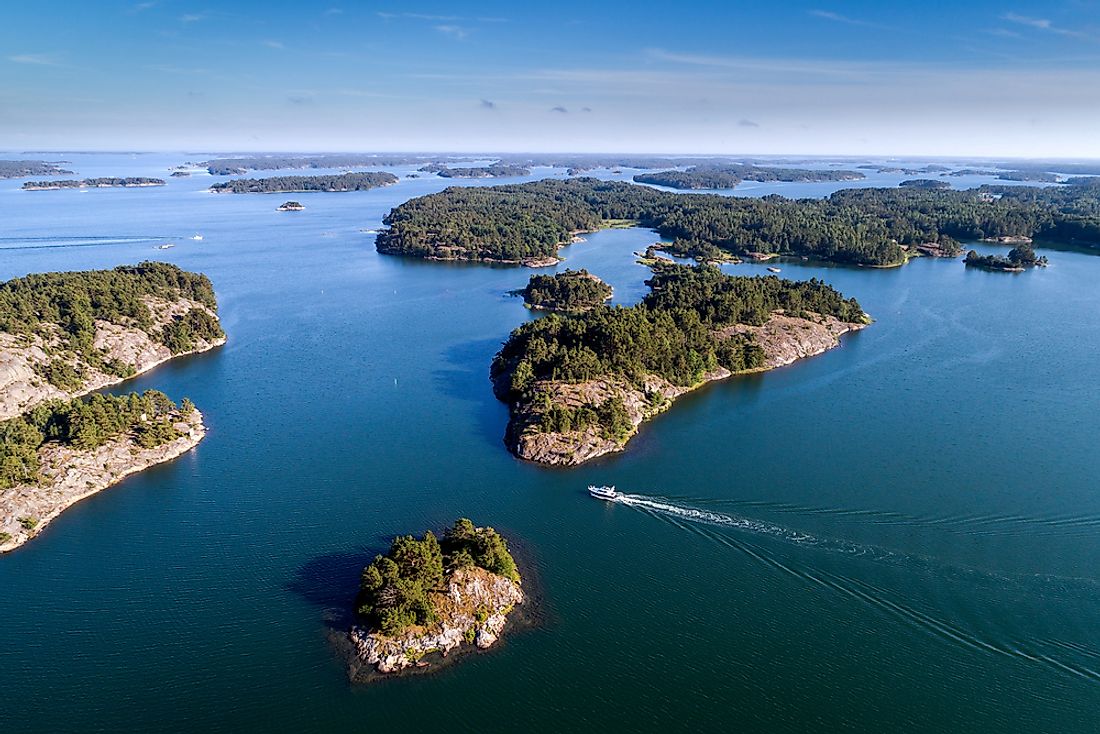How Did the Archipelago Sea Get Its Name?

The Archipelago Sea lies within Finnish territorial waters. It is located in between the sea of Åland, the Gulf of Finland, and the Gulf of Bothnia. The sea forms part of the Baltic Sea.
An archipelago refers to a group of island scattered in a water body. The water body may either be an ocean, a lake, or a river. The Archipelago Sea has the largest number of archipelagos in the world. This is how it got its name. It contains numerous islands, some of which are small and closely clustered. The sea features bigger islands and these are interconnected by ferries and bridges.
Features of the Archipelago Sea
The Archipelago Sea is spread on a triangular area and is bordered by three cities on the sides. The archipelago can be classified into two categories: inner archipelago and outer archipelago. The outer archipelago is mainly composed of smaller islands, which are not inhabited. The sea has a total surface area of 3,205 square miles. Of this area, 772 square miles is land. The Archipelago Sea is shallow and most of its channels are not navigable by large vessels. The mean depth of the Archipelago Sea is 23 meters.
Islands found in the Archipelago Sea
The Archipelago Sea has numerous islands. It is hard to define the exact number. The various patches of dry land on the sea vary from big islands to small rocks peeking from the water surface. Some islands on the archipelago are so big that they host villages and small towns. Studies reveal that the number of islands that are bigger than one kilometer squared is 257. Smaller aisles of 0.5 ha and below are around 17,700. Small inhabitable rocks stand at about 50,000.
Formation of the Islands
The islands started emerging from the sea after the last ice age. This in turn resulted in expansion of both continental and polar ice sheets. As a result of post-glacial rebound, the archipelago keeps undergoing changes.
As new islands and skerries are slowly formed, the older ones continue merging or expanding in size. The yearly rate of rebound ranges from 4 to 10 millimeters. The rate of erosion is lower than rebound since the islands are made of gneiss and granite which are very hard rocks. However, due to the southern location of the archipelago, the process of post-glacial rebound is low.
Flora and Fauna in the Archipelago Sea
The archipelago islands provide a great habitat for wildlife. The larger islands are similar to the coastal areas of continental Finland. The skerries have a different environment from the islands. The small islands do not have big trees but still harbor a wide range of plant life. The Baltic Sea has low salinity and this makes the archipelago water ideal for plant growth. While most islands are rocky, some consist of a terminal moraine. The latter has more diverse flora and fauna. The archipelago is home to many species some of which are not available anywhere else in Finland. The islands are home to numerous species of sea birds. Many areas on the archipelago are free from human activities as they are inaccessible.











